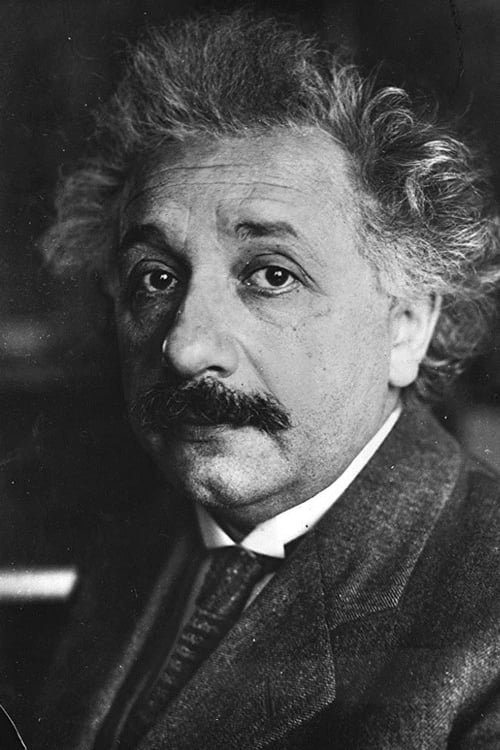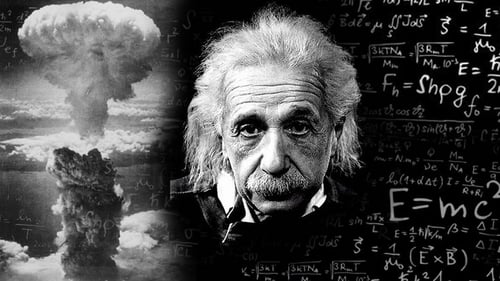Albert Einstein
출생 : 1879-03-14, Ulm, Kingdom of Württemberg, German Empire
사망 : 1955-04-18
약력
Albert Einstein (14 March 1879 – 18 April 1955) was a German-born theoretical physicist who developed the theory of relativity, one of the two pillars of modern physics (alongside quantum mechanics). His work is also known for its influence on the philosophy of science. He is best known to the general public for his mass–energy equivalence formula E = mc2, which has been dubbed "the world's most famous equation". He received the 1921 Nobel Prize in Physics "for his services to theoretical physics, and especially for his discovery of the law of the photoelectric effect", a pivotal step in the development of quantum theory.
From Wikipedia, the free encyclopedia
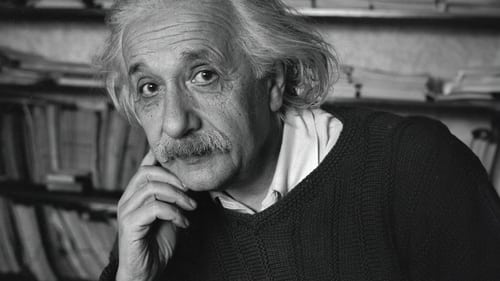
Self (archive footage)
나치 집권 독일을 떠난 뒤, 아인슈타인에게는 어떤 일이 일어났을까? 자료 영상과 그가 남긴 말을 통해, 극심한 고통 속에 살았던 한 천재의 정신세계를 탐구해 보는 다큐드라마.
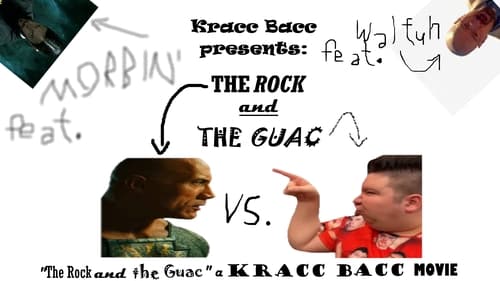
Executive Producer's Assistant
Tired of the verbal abuse of fans, Nikocado decides to go to the world of Minecraft and take revenge on The Rock, what follows will shock you, Waltuh.

Co-Director
Tired of the verbal abuse of fans, Nikocado decides to go to the world of Minecraft and take revenge on The Rock, what follows will shock you, Waltuh.
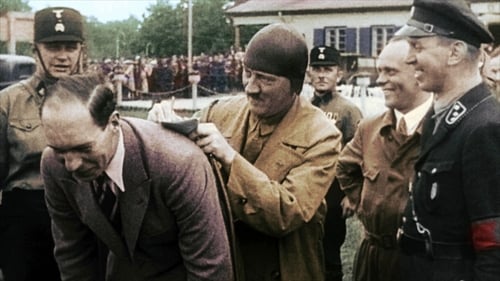
Self (archive footage)
How Germany was when its people entered the nightmare of World War II? Despair and fear lead a hungry population to follow the chilling call of just one man to world domination. A real-life horror story, an ominous tale of violence and deception, which takes place from 1919 to 1934. (Entirely made up of restored, colorized archival footage.)

Self (archive footage)
On the 29th of August 1949, the USSR set off their first atomic bomb, just four years after the Americans. The speed with which they achieved this surprised the world. What nobody knew was that it was the result of espionage. At the centre of the operation was a very unusual female spy, Elizabeth Zaroubin, in a story worthy of the best spy novels ever written.

Himself (archive)
This documentary traces the "physical history" of Fritz Lang’s M, from its production and original distribution to the digital restoration used as the basis for this edition. It includes a look at the French-language version of M but was produced before the discovery of the English-language version.
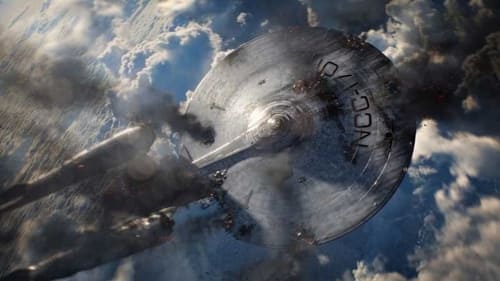
Himself (archive footage) (uncredited)
Is building our own starship Enterprise possible? Will we ever travel between the stars as easily as they do in Star Trek? JJ Abrams' new feature, Star Trek Into Darkness, hits the screen in a golden age of scientific discoveries. HISTORY is there, giving viewers a deep look behind the scenes, on the set, and into the science–amazing new exoplanets, the physics of Warp drive, and the ideas behind how we might one day live in a Star Trek Universe.

Himself (archive footage)
An unconventional documentary that lifts the veil on what's really going on in our world by following the money upstream - uncovering the global consolidation of power in nearly every aspect of our lives. Weaving together breakthroughs in science, consciousness and activism, THRIVE offers real solutions, empowering us with unprecedented and bold strategies for reclaiming our lives and our future.

Himself
The core of the video is a pedagogical workshop on the Theory of Special Relativity as part of the educational process conducted by our youth leadership. Not for the sake of understanding the theory itself, but using Einstein's particular discovery as a case study to demonstrate and walk people through real human thinking, as being something above sense perceptions or opinions. We end with reflecting on the principle of relativity in terms of social relations and individual identities or thought processes, asking the question - how was Einstein able to make his breakthrough?

Self (archive footage)
About the researcher Wilhelm Reich, who wanted to prove and compare life-energies in global experiments and searched for basic principles of life. His transformation from the model student Freud to the questionable UFO researcher is also addressed.
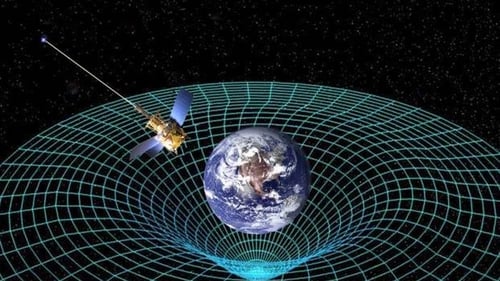
Himself
That might seem a bizarre statement, coming a century after Einstein showed that gravity is the result of matter warping space and time around it.
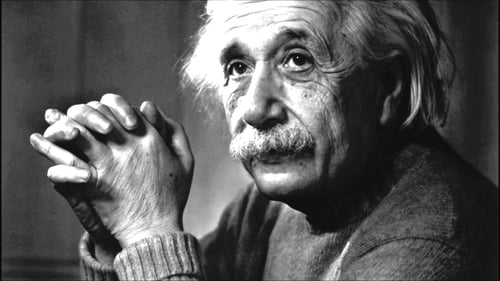
Albert Einstein
This captivating documentary from the History Channel recounts the development of iconic physicist Albert Einstein's provocative theory of general relativity. Some 200 years after the introduction of Isaac Newton's law of universal gravitation, Einstein rocked the science community with his theory, which suggests that gravity is a warping of space-time caused by the presence of matter.

Self (archive footage)
"Trinity and Beyond" is an unsettling yet visually fascinating documentary presenting the history of nuclear weapons development and testing between 1945-1963. Narrated by William Shatner and featuring an original score performed by the Moscow Symphony Orchestra, this award-winning documentary reveals previously unreleased and classified government footage from several countries.

Self (archive footage)
From the beginning, Hergé's work, Tintin's creator, was conditioned by the ideology of his publisher, the weekly child supplement of a Belgian Catholic newspaper. An exciting analysis of the political meaning of the adventures of Tintin.

Himself
Documentary on physicist Albert Einstein which chronicles the experiences that lead him to become a great advocate for world peace.

Himself
It starts with a live radio broadcast from the Bikini Atoll a few days before it is annihilated by a nuclear test. Shows great footage from these times and tells the story of the US Navy Sailors who were exposed to radioactive fallout. One interviewed sailor suffered grotesquely swollen limbs and he is shown being interviewed with enormous left arm and hand.

(archive footage)
Originally called World '68, later retitled The World of Today Romm’s film was conceived as an impassioned, large-scale essay on the origins of the 20th century and the subsequent reality the disappointed director felt slipping away from him. The film itself slipped away from him and was left unfinished at the time of his death. His younger colleagues, Marlen Khutsiev, Elem Klimov and German Lavrov, completed the film from the elements he left behind in addition to segments from Ordinary Fascism, closing the film with Romm’s ultimately optimistic outlook: "And still I believe that man is sensible..."
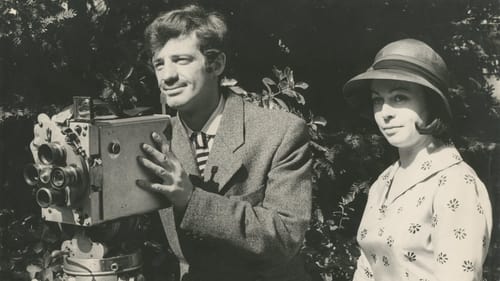
Self (archive footage)
An interesting mixture of filmed scenes with Belmondo and archival footage regarding cultural aspects of all kind around Paris, starting at the end of the 19th century and ending in the mid-1960's. Jean-Paul Belmondo leads us through the movie starting as a young photographer around 1900, a reporter in both world-wars and doing fictional interviews with lots of celebrities.

Himself
When jobless genius Beauregard Bottomley interviews with Burnbridge Waters for a position at Waters' soap company, the owner rudely turns Bottomley down. As revenge, Bottomley enters a TV quiz show that Waters' company sponsors, with the goal of winning until he bankrupts the businessman. When Bottomley keeps acing the questions, becoming a media sensation, Waters desperately calls on vixen Flame O'Neal to uncover Bottomley's area of weakness.

Self (archive footage)
Documentary filmmaker Nicole Vedre's first semi-fictional feature was released in France in 1949 as La Vie Commence Demain. The film made it to the U.S. in 1952 as Life Begins Tomorrow. Made in cooperation with UNESCO, the film speculates on the future of mankind after the advent of Atomic Energy. Many prominent French artists and intellects contribute to the narration: Jean-Pierre Aumont plays The Man of Today, Andre Labarthe is the Man of Tomorrow, and Jean-Paul Sartre, Daniel Agache, Jean Rostand, Le Corbusier, Pablo Picasso and Andre Gide are respectively seen as "The Existentialist," "The Psychiatrist,' "The Biologist," "The Architect," "The Artist" and "The Author" (talk about typecasting!) Film clips of hospitals, schoolrooms, scientific laboratories, and even nightclubs are woven into Vedre's fascinating tapestry.
